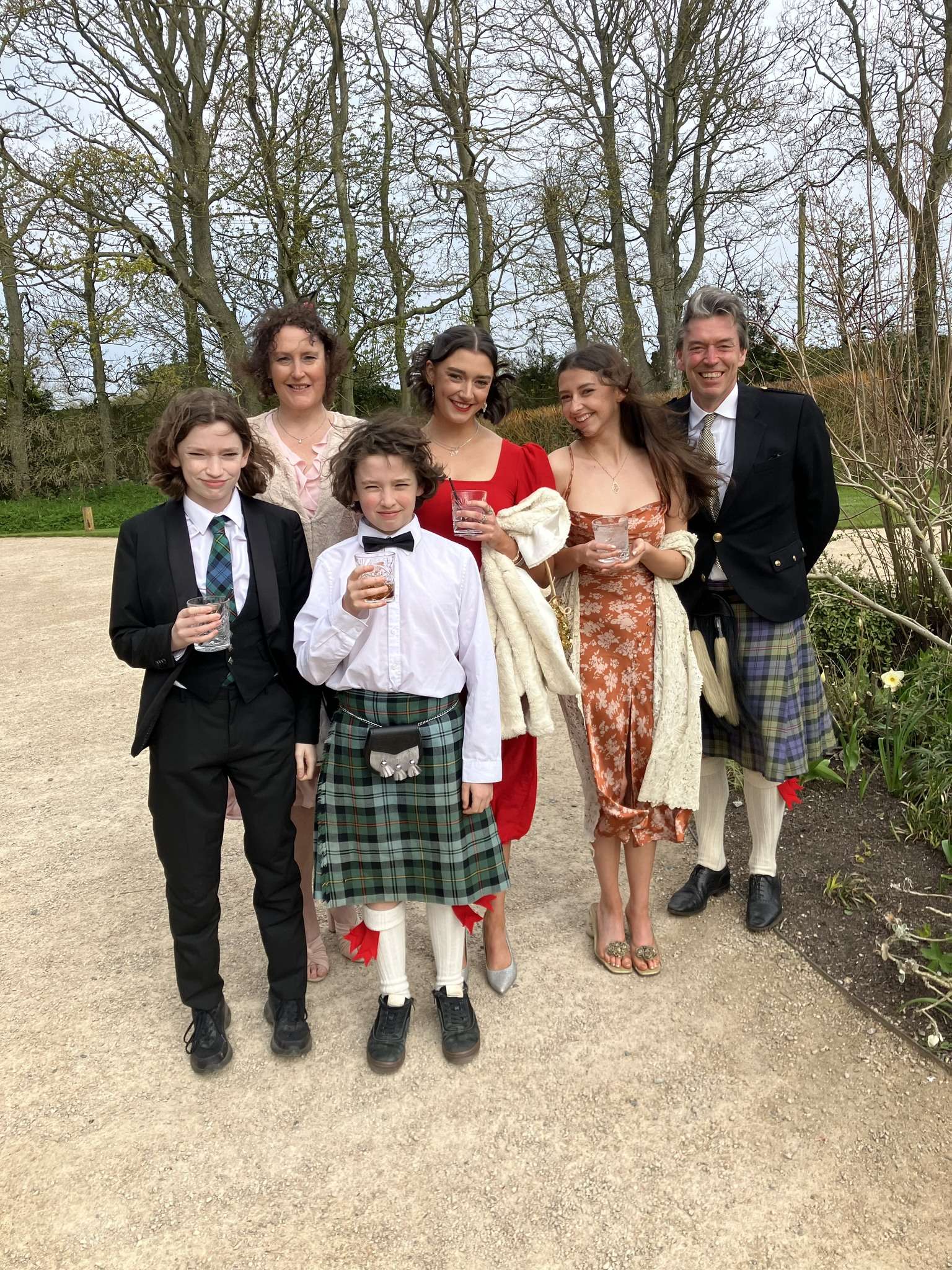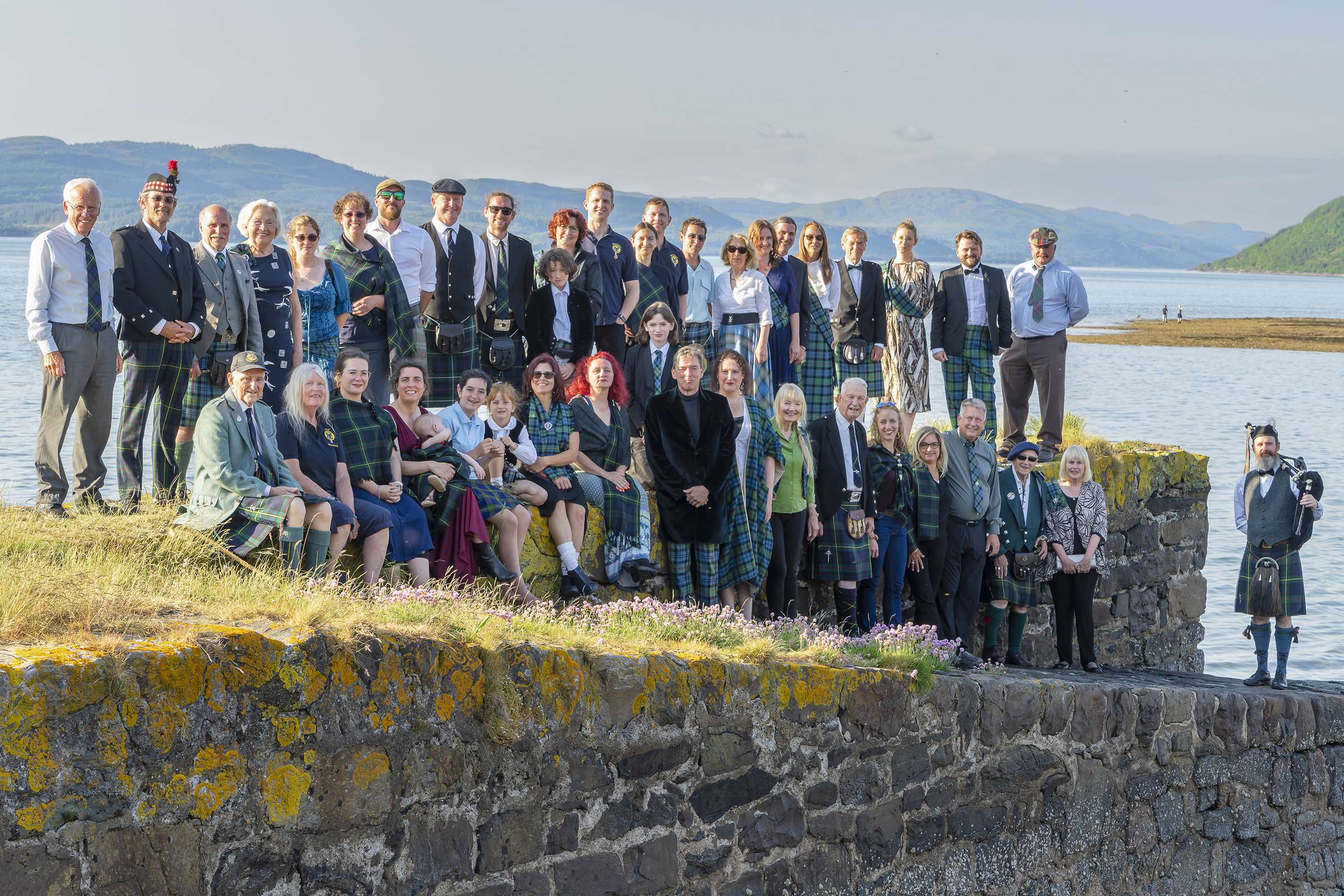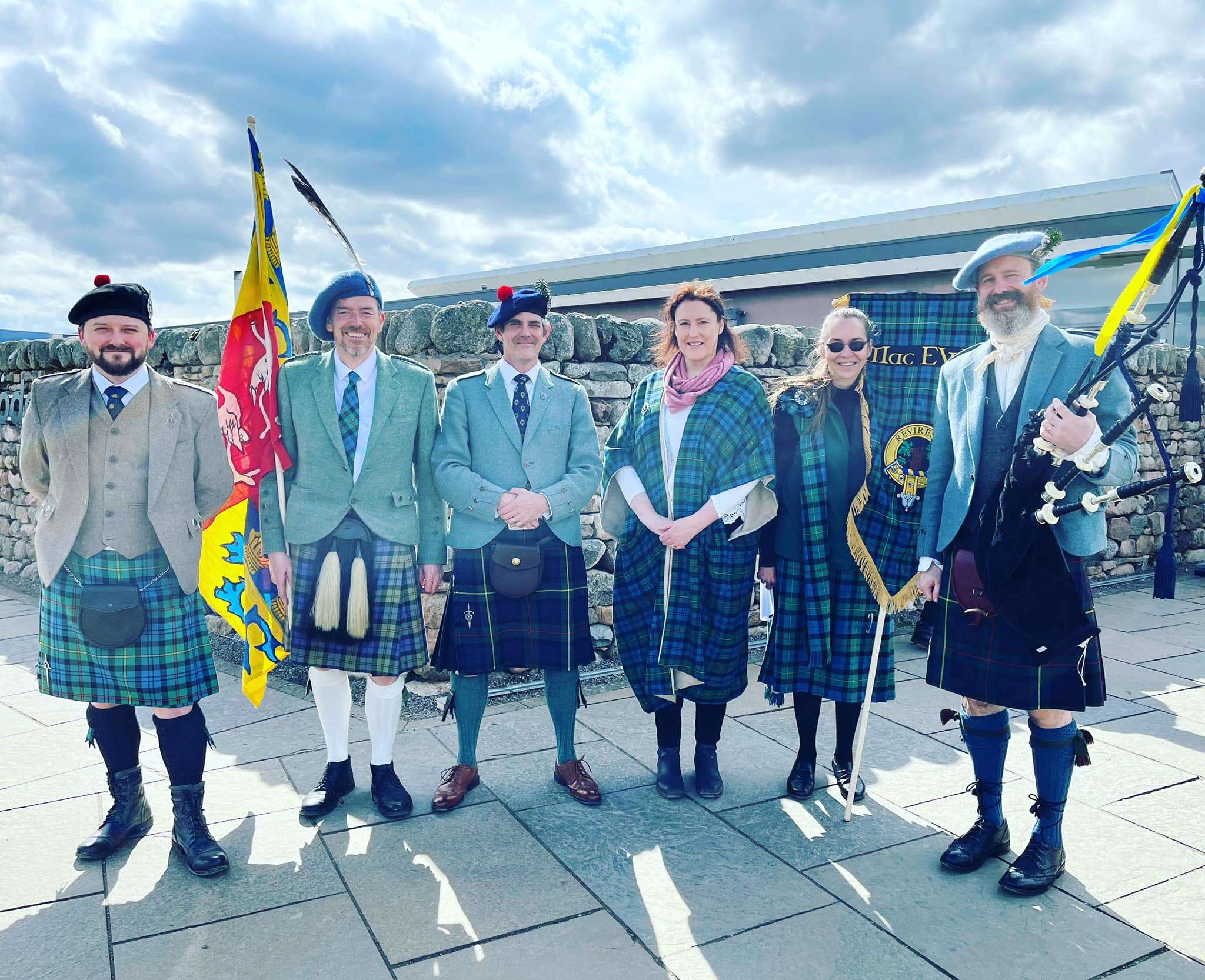In June 2024, Clan MacEwen will come together for what might well be the most momentous gathering in its entire history. The Scottish part of that history began in the 11th century when the Irish prince Ánrothán Ua Néill of the powerful O’Neill dynasty, descendant of the legendary Niall of the Nine Hostages, left Ireland for Kintyre. He died in 1036 with several Clans – Lamont, Maclachlan, MacNeil, MacSween and MacSorley among them, as well as MacEwen – claiming descent from his line.
The MacEwens developed into a leading Dalriadic Clan and had their first Chief in about 1200. Seven more Chiefs followed and in 1429 Swene MacEwen of Otter was recognized as the ninth Chief of Clan MacEwen. At this point, however, things went awry and in March 1432 Swene, presumably in a state of some desperation, resigned his title to the Barony of Otter to his feudal lord, King James. The King restored Swene to his title but designated Gillespie Campbell as heir to the Barony of Otter. When Swene died (it is not sure exactly when), the Barony passed into the hands of the Campbells.
Clan MacEwen Society

Since then, the MacEwen Clan has been landless and Chiefless, sometimes officially designated “a broken Clan”, and always looking forward to better times and back to its time of glory as one of the leading Clans in the West of Scotland. When the 19th century brought greater awareness of Clan histories, the MacEwens made sure to establish as theirs the beautiful restrained tartan they wear, their crest – the stunted oak tree uttering forth new growth – and motto – “Reviresco” which translates as “We Shall Rise Again” or “We Grow Green”. In the 21st century, the Clan decided to add the war cry “Cómhla!” (“Together!”) and a cap badge of yew to its armoury of treasured symbols.
In the 1950s several leading members of the Clan had approached the poet and politician, Sir John McEwen, 1st Baronet of Marchmont & Bardrochat, to see if he would be interested in becoming the 10th Chief of the Clan. He declared an interest in doing whatever he could for the good of the Clan and slowly, slowly, wheels began to turn. While three further Baronets lived and died, not a great deal was achieved but in 1994 the Maclachlans spurred the Clan Ewen Society (as it was called from its foundation in 1977, now, since 2019, the Clan MacEwen Society) into action. The Maclachlans made the erroneous claim that the MacEwen Clan was a sept of the Maclachlan Clan but there was nothing to be done about this because the MacEwens had no representation on the Standing Council of Scottish Chiefs, because they were chiefless. The Society approached Sir John McEwen, 5th Baronet, who responded as his grandfather had done.
Since then, after immense volumes of correspondence mainly with the Lyon Court, much assisted by the late great genealogist, Hugh Peskett, the MacEwen Clan has made considerable progress. In 2014 Sir John McEwen was appointed Commander of the Clan for an initial period of five years. In 2019 the appointment was ratified by the Clan. Throughout, Sir John (an actor and playwright, husband of Rachel and father of four) has been actively seeking out further claimants to the Chiefship, especially searching for anyone who might lay claim to descent from the last known Chief, Swene MacEwen.
Family convention

No one else has as yet come forward but the search will continue until the Gathering on June 8th when a senior member of the Lyon Court will attend the “Family Convention” and, if all goes well, by the end of the day the MacEwen Clan will have a Chief once more. The jollification of an inauguration should follow in due course, but the solemn moment of restoration will occur – if all goes to plan – in June. This all depends on the Clan having proved itself over the last ten years to be organized and thriving which, as burgeoning membership and gathering-attendance figures show, it certainly is. In common with most Scottish Clans, much of its energy comes from the diaspora, from the USA, Canada, Australia and New Zealand in particular, but Clan MacEwen is rooted in Scotland and Scottishness and its Commander, Chair and Vice-Chair all live in Scotland. It is very aware, however, of its international identity and indeed exults in it. It has two pipe bands, one German, one Australian, members in France, the Netherlands, Italy and many in England, and it takes seriously its responsibility as a global organization, even if rooted at Kilfinan on the shores of Loch Fyne, where the Chair of the Society now lives.
Responding to the 21st century, the Clan sees itself as a force for good and wants particularly to be known as “The Clan That Plants Trees” and “The Clan That Speaks Gaelic (or tries to)”. The Clan woodland, by its ancestral homeland at Tighnabruich, is just now being planted. The Clans in the 21st century of course play a very different part to that played by their ancestors, but they remain of deep importance and considerable power. The task of all of them is to remain relevant and benevolent, Scottish and international, steeped in history but forging ahead into the future. Clan MacEwen, with a vibrant and relatively youthful leadership group with imaginative and innovative commissioners in every part of the diaspora, has already proved itself more than up to the task of Clanship in the 21st century. All it needs now … is a Chief.
For more information on the work of the Clan, and the Convention, please visit: www.ClanMacEwen.com.

